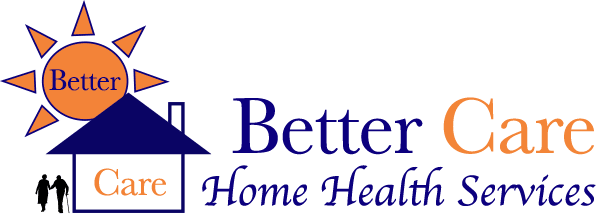Homecare: As you age, certain nutrients tend to be lacking in your diet.
Some of these deficiencies impact overall health. What nutrient deficiencies are common in the elderly, and what happens if your parents are not getting enough? Homecare service providers can help with the following nutrients.
Homecare in Broomall PA: Nutrient Deficiencies
-Calcium
Calcium is needed for strong bones. If there is any risk of osteoporosis or thinning bones, your mom and dad need to talk to their doctor about a bone density screening. Most doctors recommend this simple test for older adults.
Foods rich in calcium can help strengthen bones and lower the risk of bone fractures during a fall. Eating juices and cereals fortified with calcium and enjoying dairy are easy ways to get enough calcium.
-Fiber
Fiber helps you feel fuller for longer. It’s also good at retaining water in the intestinal tract to prevent constipation. Fiber also lowers the risk of colorectal cancer, heart disease, high blood pressure, and diabetes.
-Iron
Iron deficiencies impact red blood cell health and are linked to one of several things. There may be gastrointestinal bleeding that’s found during colonoscopies or ultrasounds. If it’s causing anemia, your parents will have little energy and will bruise easily.
Anemia can be tied to inadequate intake of folate or vitamin B12. Their doctor may recommend supplements and eating iron-rich produce, seeds, and meats.
-Magnesium
Leafy greens, nuts, and whole grains are all excellent sources of magnesium, yet many older adults do not eat enough. Magnesium is vital for lowering the risk of insomnia. It helps with muscle health, immune system function, and nerve function.
-Potassium
If your mom or dad takes medications for high blood pressure, kidney disease, or congestive heart failure, potassium levels may be low. Signs of low potassium include muscle cramps, fatigue, and constipation. As potassium is essential for heart function, they may need to have their doctor check their blood levels and take steps if they’re too low.
-Vitamin A
Eye health relies on adequate intake of vitamin A. It’s found in eggs, fortified dairy, leafy greens, and carrots. If your parents don’t get enough vitamin A, night blindness and dryness in the corneas are common symptoms.
-Vitamin B12
It’s estimated that upwards of 15% of adults over the age of 60 have low vitamin B12 levels in their blood. This can lead to anemia, depression, mouth sores, mood swings, and vision issues.
-Vitamin D
Vitamin D is easily obtained by spending enough time in the sun. It’s a vitamin that helps with calcium levels in the blood, nerve function, bone strength, and metabolic function. Yet, the risk of skin cancer has people limiting the amount of time they expose their bare skin to the sun. Supplements help ensure your mom and dad get enough vitamin D each day.
Your mom and dad can often avoid these deficiencies by eating a balanced diet. Homecare aides can cook meals that help them avoid processed foods and frozen meals. Call a home care agency to get started.
If you or an aging loved-one are considering hiring Homecare in Broomall, PA, please talk to the caring staff at Better Care Home Health Services LLC today. Serving individuals and their families in Philadelphia, Delaware, Montgomery, and Bucks counties. Call Today: (267) 766-5218
Sources:
https://pubmed.ncbi.nlm.nih.gov/10448529/
Better Care Home Health Services is a family-owned agency dedicated to providing excellent and comprehensive home health care to individuals and families of Philadelphia, Delaware, Montgomery and Bucks counties. We are honored that God has blessed us with the opportunity to positively impact and change people’s lives. It is our mission to ensure that we provide the very best of care to our clients.
- Tips and Tricks to Help Seniors Feel Warmer - April 4, 2024
- Six Ways to Encourage Seniors to Tackle Spring Cleaning - March 19, 2024
- Understanding Constipation in Seniors: Causes and Prevention Techniques - March 5, 2024

